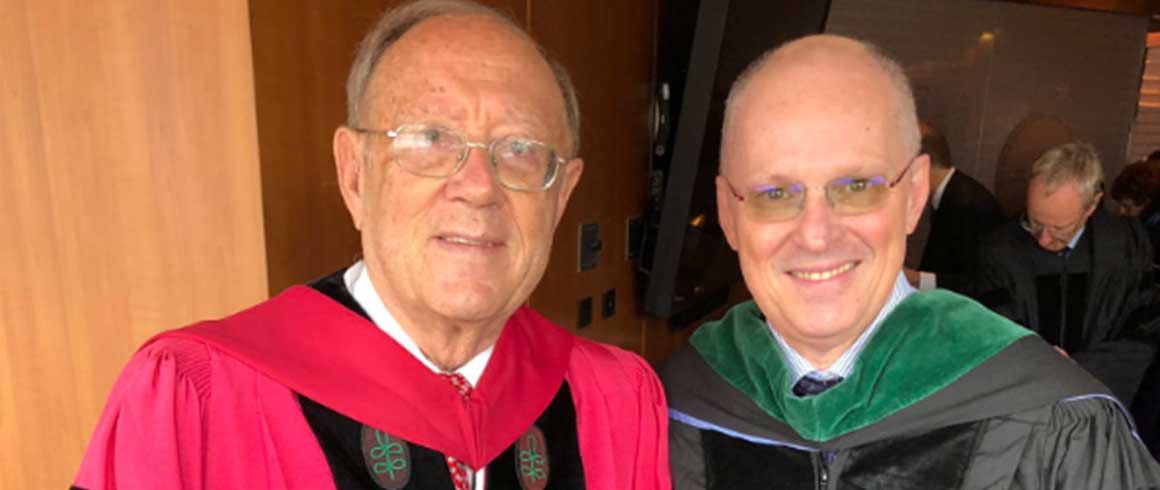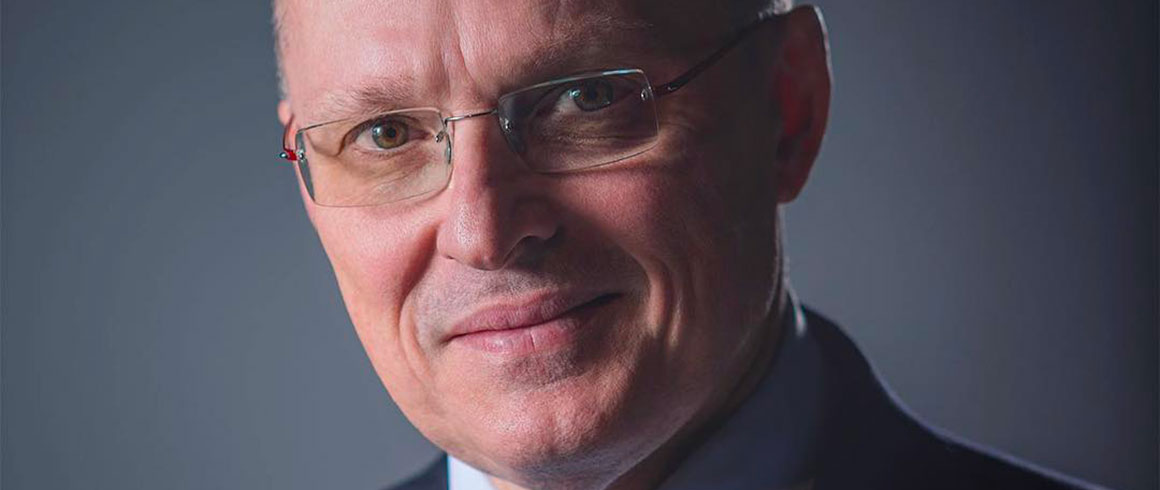Walter Ricciardi, professore ordinario di Igiene generale e applicata all’Università Cattolica, ha ricevuto mercoledì 22 maggio, la laurea “honoris causa” in “Dottore della scienza” dalla Thomas Jefferson University di Philadelphia. Pubblichiamo il Commencement Speech che ha tenuto nell’Ateneo americano
di Walter Ricciardi
I am extremely honoured to be invited to give the commencement speech this year and to congratulate the students, the families and the faculty for the important achievement we are celebrating today.
You have worked hard over the years to acquire knowledge and skills aimed at improving people's lives and I am sure you believe that they can support you in finding a job that will satisfy your wonderful aspirations.
I am sure it will be so, but I am also certain that in your professional life you will have to be aware of some new challenges.
In particular I am pretty sure that fake news will meet your path and that they can cause serious troubles.
I am sure that few, if any, of the people standing here today will believe any of these statements:
• HIV does not cause AIDS
• The world was created in 4004 BC.
• Smoking does not cause cancer.
• Vaccines cause rather then prevent diseases.
Yet each can be found easily in the mass media.
And the consequences of policies based on these can be fatal.
To give you an example, the former president of South Africa Mbeki’s denial that HIV caused AIDS prevented thousands of HIV positive mothers receiving anti-retrovirals so that they, unnecessarily, transmitted the disease to their children. His health minister, Manto Thabalala-Msimang, famously rejected evidence of the efficacy of these drugs, instead advocating treatment with garlic, beetroot and African potato.
It was ironic that their departure from office coincided with the award of the Nobel Prize to Luc Montagnier and Francoise Barrè-Sinoussi for their discovery that HIV is indeed the cause of AIDS.
All previous examples have one feature in common.
There is an overwhelming consensus on the evidence among scientists yet there are also vocal commentators who reject this consensus, convincing many of the public, and often the media too, that the consensus is not based on “sound science” or denying that there is consensus by exhibiting individual dissenting voices as the ultimate authorities on the topic in question.
Their goal is to convince that there are sufficient grounds to reject the case for taking action to tackle threats to health.
Why I am saying this to you today? Because this is a challenge of our times and because I believe that in your future career of scientists, doctors, professionals you should be aware of the feature of denialism and be able to recognize and confront it.
Denialists are driven by a range of motivations. For some it is greed, for others is the ideology or faith, causing them to reject anything incompatible with their fundamental beliefs. Finally, there is eccentricity and idiosincrasy, sometimes encouraged by the celebrity status conferred on the maverick by the media.
Believe me, communicating with non-experts will become one of the most important activities in your occupations and whatever the motivation, it is important to recognise denialism when confronted with it.
Probably today you would respond to an opposing argument engaging with it, testing the strengths and weaknesses of the differing views, in the expectations that the truth will emerge through a process of debate.
This is the normal academic response and is almost certainly going to fail as it requires that both parties obey certain ground rules, such as a willingness to look at the evidence as a whole, to reject deliberate distortions and to accept principles of logic.
But remember: a meaningful discourse is impossible when one party rejects these rules.
Yet it would be wrong to prevent the denialists having a voice. Instead, I argue, it is necessary to shift the debate from the subject under consideration, instead exposing to public scrutiny the tactics they employ and identifying them publicly for what they are.
In this country Tom Nichols attributes much to the societal changes experienced by the media and college education as the US transitioned from a modern to a contemporary society and focuses on the changes in value systems and group psychology experienced by society.
He fears about a Google-fueled, Wikipedia based, blog-sodden collapse of any division between professionals and laymen, students and teachers, knowers and wonderers – in other words, betweeen those of any achievement in an area, like you, and those with none at all.
By this, we do not mean the death of actual expertise, the knowledge of specific things that sets some people apart from others in various areas. There will always be doctors, lawyers, engineers, and other specialists in various fields.
Rather, what we fear has died, is any aknowledgement of expertise as anything that should alter our thoughts or change the way we live.
But why is this important for health?
Quite simply because accurate information can make the difference between life and death.
So what can we do? First, let’s begin with how we, as researchers and practitioners, frame our messages. For example, we can state the facts, and then introduce the myth, rather than the other way round. Then we can debunk the myth and end with the scientific fact.
But if fake news, or better to say, disinformation, really is a threat to health and public health then perhaps we should be campaigning for real action to combat it.
That also means writing to newspapers and complaining to news organisations. It sometimes works. The BBC in UK and RAI in Italy have finally agreed that they do not always need to bring on a climate change denier every time there is new evidence of the effects of global warming.
And I want to conclude exactly on this, the most important challenge you will have in your life.
Climate change.
The impacts of climate change have worsened dramatically and more visibly in the past ten years —with extreme heat waves, droughts, and wildfires in Europe and USA; larger, more powerful, longer-lasting, and more lethal hurricanes over the Caribbean and southeastern United States; super typhoons in the western Pacific Ocean; severe drought and wildfires in California; an intensifying die-off of the Great Barrier Reef and other coral reefs around the world; and other impacts on planetary physical, chemical, and biological systems that threaten our health and lives, and the survival of countless other organisms that provide goods and services supporting all life, including human life, on Earth.
Our species has warmed the Earth’s surface on average by about 1 degree Centigrade over the last century and 15 of the 16 warmest years on record have occurred since the year 2000.
If we don’t reverse the course we are on we are talking about a world I believe we would have trouble recognizing.
A world where life will become dangerous and challenging.
The evidence is overwhelming that we are facing a medical emergency exponentially more catastrophic in scope, magnitude, and duration than any our species has ever faced.
How can we as senior scientists, old physicians and experienced professionals help others understand this danger?
We rely on you, young scientists, young physicians, young professionals, on your competence, on your enthusiasm, on your courage.
The increasing inequalities that we are storing up for our children and grandchildren are simply wrong and are largely preventable with knowledge we already have if we chose to use it.
We have no right to use resources so profligately today that we endanger the fundamental bases of health and justice for people today or tomorrow.
Together we need to use our voice and influence to ensure that, on our watch, we leave a legacy we can be proud of.
I hope you will. I am sure you will.
Thank you very much for your kind attention



